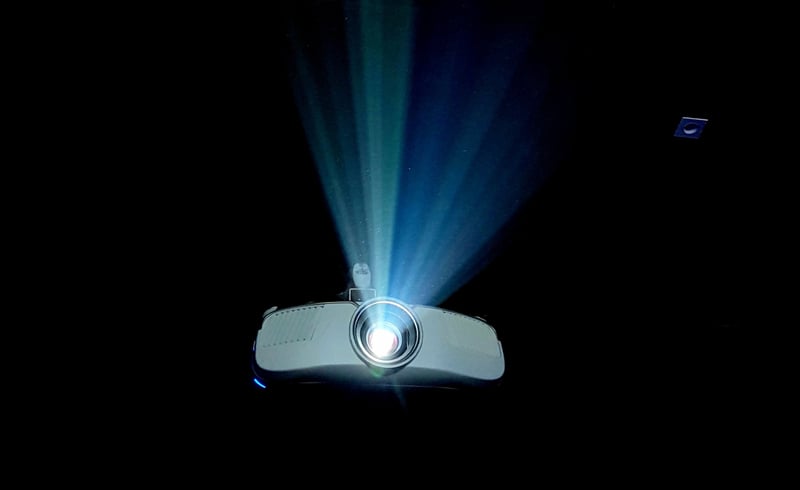

Lamp vs LED vs Laser Projectors| Everything About Projector Light Source
The light source is an indispensable component of a projector because it determines the brightness, color performance, and lamp hours of a projector.
In this guide, we are going to talk about the common three light sources, lamp, LED, and laser, and analyze their pros and cons.


The lamp is the earliest light source that was widely used in the projector industry among the three light sources, which are common in some traditional multimedia projectors or educational projectors. The lamp for the projector mainly includes high-pressure mercury lamps, Metal halogen lamps, and xenon lamps. The high-pressure mercury lamp is the commonest lamp type in home projectors in view of its lower cost and good overall performance. A lamp projector generally has a lamp life of 5,000 hours or so. Most lamp projector has 1,000-40,000 lumens.
Lamp-based projectors are widely seen in Epson’s and Optoma’s home projectors, commercial projectors, and educational projectors.
LED is also a common light source for projectors. It is widely used in some home projectors or mini projectors because of its low cost, small size, and wide availability.
Texas Instruments began to produce DLP chips for the LED light which combine red, blue, and green LEDs. Compared with lamps, LED has longer lamp life and smaller size but lower brightness. The major drawback of the LED projector is the lower brightness. Generally, an LED projector has a brightness range of 100-3,000 lumens. Some mini LED projectors with built-in batteries are generally rated at 200-400 ANSI lumens. LED projectors generally can last 20,000 hours or so.
BenQ and ViewSonic are known for LED projectors. BenQ has released 4LED gaming projectors to improve the overall performance.
Compared with the two light sources above, the Laser projector has better performance in terms of brightness and lamp life. A projector with a laser light source makes excited particles glow under the action of radiation because of the photoelectric effect.
Laser projectors bring long lamp life and high brightness. Generally, a common laser projector can last 20,000 to 25,000 hours. A laser projector may have a brightness of 2,500-75,000 ANSI lumens. In addition, the laser projector has good coverage of BT. 2020 color gamut and produces lower heat. Laser light source is common in some high-end smart home theater projectors and commercial projectors, for example, VAVA and Dangbei.
Through the introduction and analysis of the lamp, LED, and laser projector, we can conclude the points below.
| Light source | Lamp | LED | Laser |
| Brightness | High | Low | Higher |
| Lamp life | Short | Long | Longer |
| Price | Cheap | Cheaper | Expensive |
Lamp, LED, and laser has both pros and cons. Among the three light sources, the laser projector is the brightest and the most expensive; the LED projector is the cheapest but has the lowest brightness; the lamp projector has the shortest lamp lifespan but the moderate price.
Lamp, LED, and laser has their own advantages and disadvantages. You can select a proper one based on your budget and usage scenarios.
If you have a budget of $200 or below, you can choose an LED projector.
If you have a budget of $ 1,500 or below, you can choose a lamp projector or a smart LED projector.
If you have a budget of $2,000 or above, you can choose a laser projector.
If you use the projector mainly at night, you can choose a lamp projector or LED projector with at least 200 ANSI lumens.
If you use the projector during the daytime or under strong ambient light, you can choose a lamp projector or laser projector with more than 2,000 ANSI lumens.
If you want the projector to work as a home theater, you can choose a laser projector because it has good overall performance.
That’s all for the introduction and comparison between lamp, LED, and laser projectors.
Related Posts